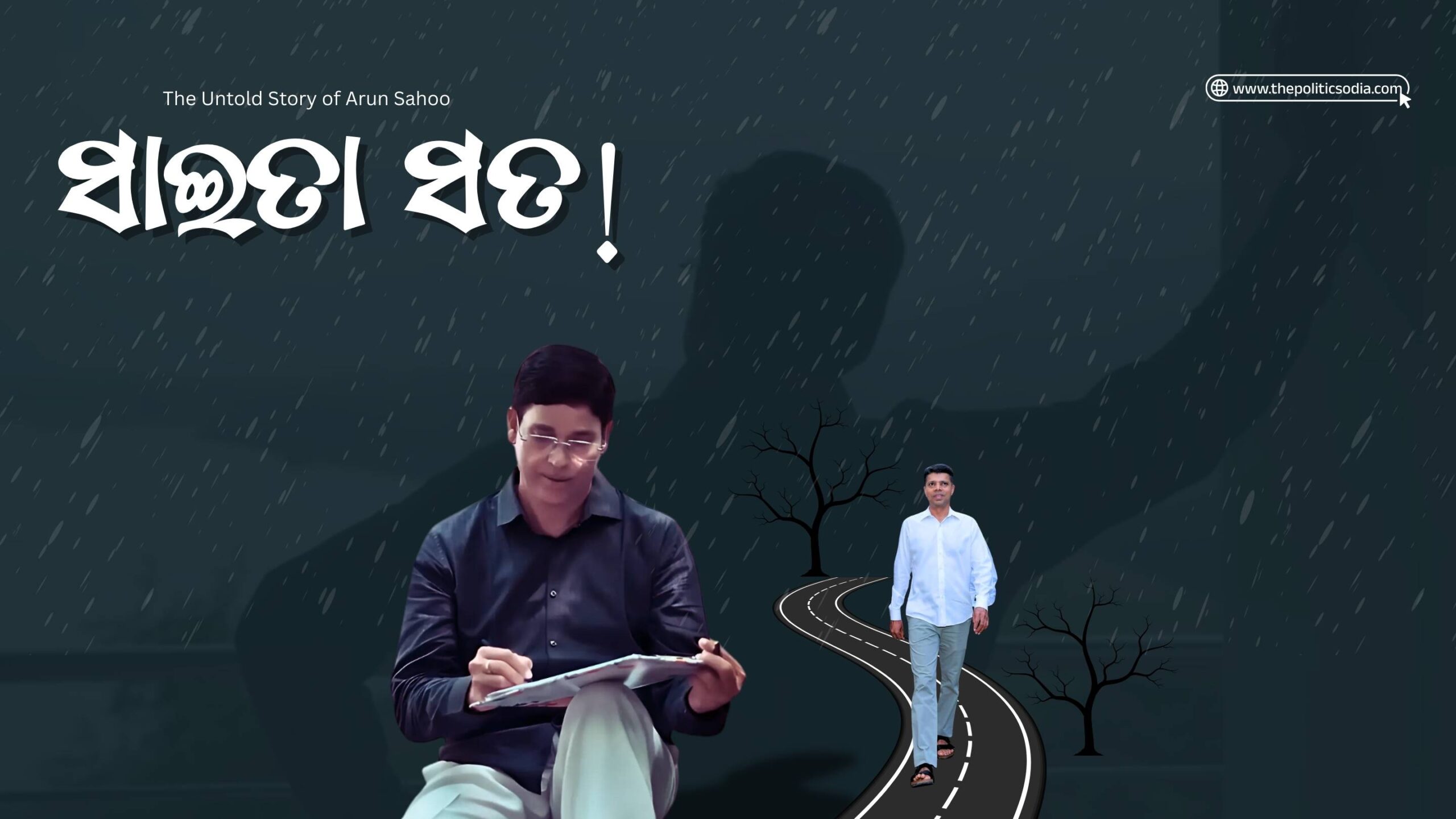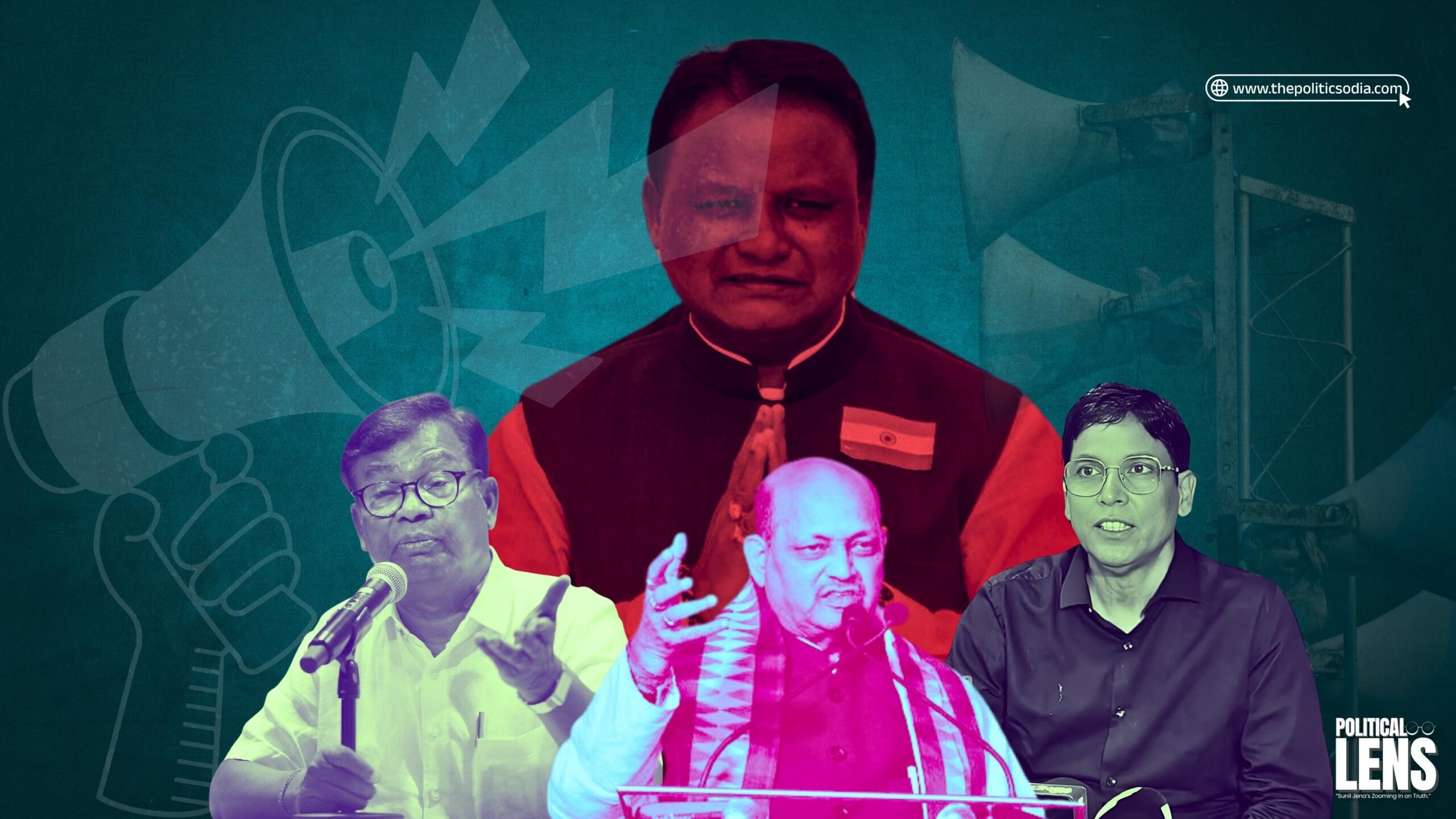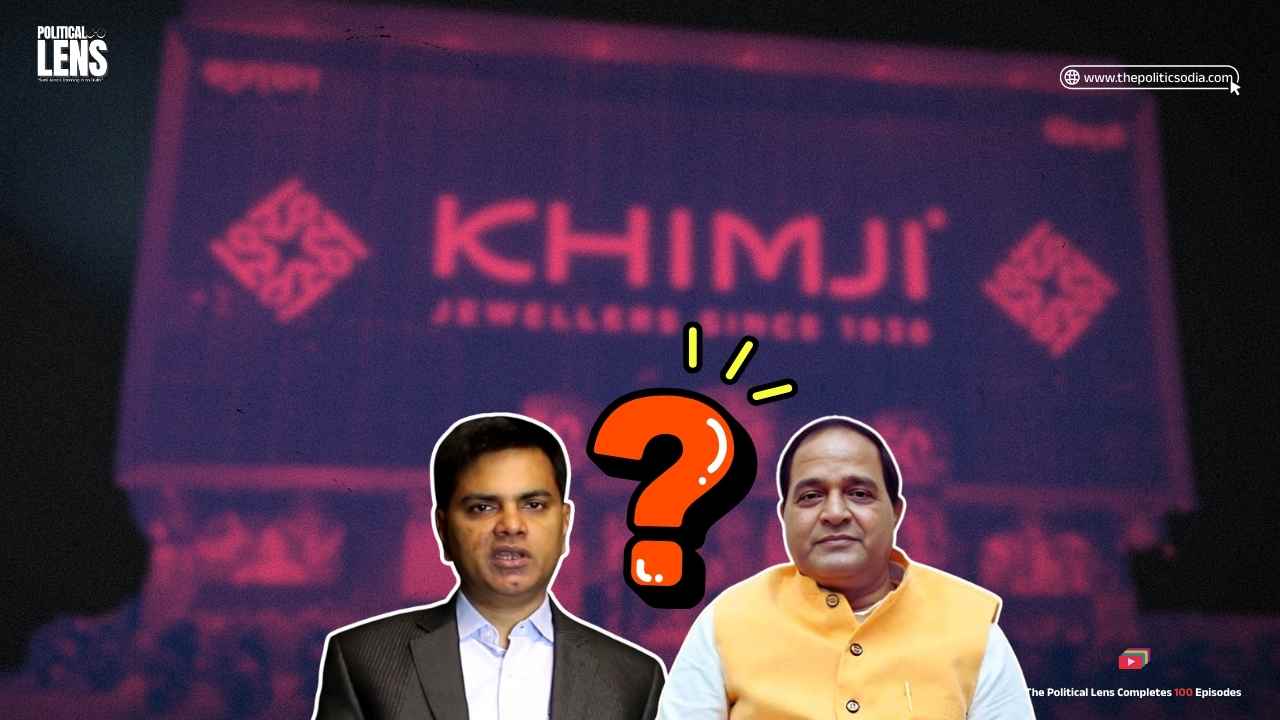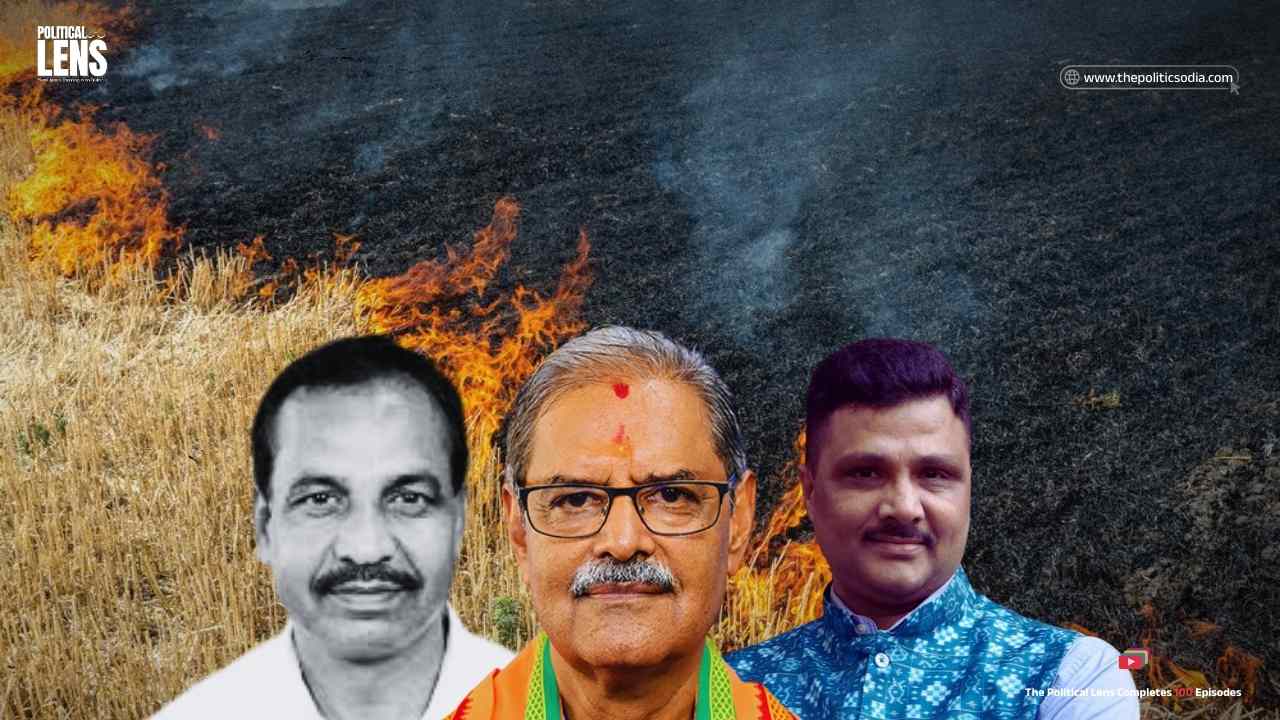By Sunil Jena, Editor-in-Chief | The Politics Odia
Bhubaneswar – In a development that has stirred political circles in Odisha, senior Biju Janata Dal (BJD) leader and poet Dr. Arun Sahoo has used the launch of his latest book “Saita Sata” as a platform to convey deep political dissatisfaction. The book, unveiled recently, features contributions from several eminent Odia writers – but Dr. Sahoo’s own three-page personal note has triggered intense speculation.
A Veiled Attack Inside the Pages
In his note, Dr. Sahoo writes:
“It takes courage not just to speak the truth but also to listen to it.”
He further points out that those at the top rarely hear criticism in politics because people fear that honest feedback could invite displeasure or retaliation from leadership.
Although Dr. Sahoo does not directly name anyone, political observers see this as a pointed remark towards VK Pandian, the influential advisor to Chief Minister Naveen Patnaik. The underlying suggestion: if the BJD leadership – and Pandian in particular – had been told the truth before the 2024 elections, and if Pandian had the courage to listen, he might have stepped away from election campaigning. This, according to Sahoo’s implication, could have helped the party avoid losing power.
Signals of Internal Discontent
The statement comes at a time when political harmony inside the BJD appears fragile. The party, which dominated Odisha politics for over two decades, has seen cracks in its internal unity after the electoral setback. By embedding such remarks in his book rather than making them publicly from a political stage, Dr. Sahoo has adopted a literary yet unmistakably political approach to express dissent.
The 2024 Election Backdrop
BJD’s defeat in the 2024 state elections marked a major political shift in Odisha. Many within the party and political analysts have attributed the loss, in part, to the central role of VK Pandian in the campaign. His high-profile involvement, despite being a bureaucrat-turned-political aide, sparked debates over strategy, overexposure, and overreliance on a single figure.
Dr. Sahoo’s comments now add fuel to these debates – suggesting that internal criticism was either suppressed or ignored, leading to a political miscalculation.
Why This Matters Now
Political insiders believe that Arun Sahoo’s choice to voice dissent through literature is strategic – allowing him to maintain public decorum while signalling to the party base and leadership that the current trajectory is flawed. It also reflects a larger truth in Indian politics: that internal party democracy often collapses when power is concentrated in too few hands.
In essence, “Saita Sata” is not just a book launch – it’s a quiet political rebellion in hardcover.




